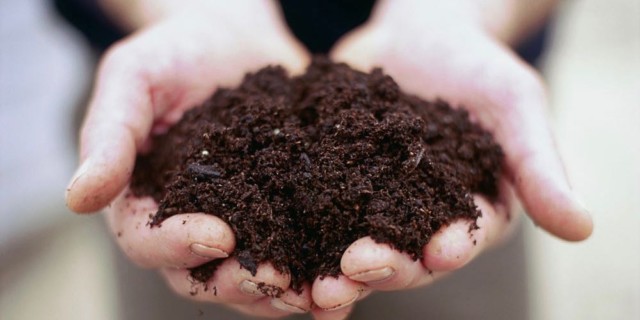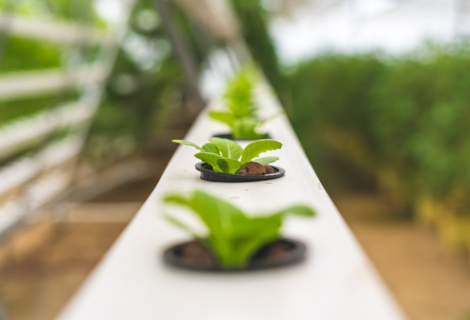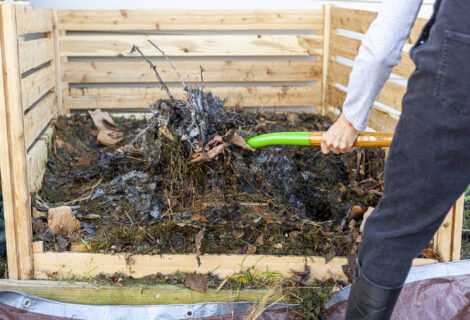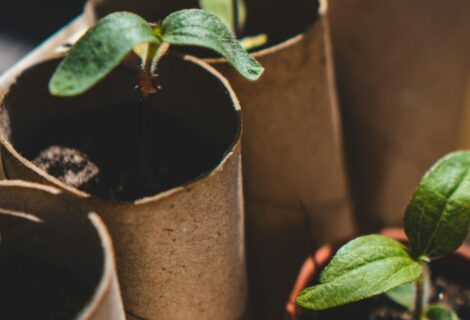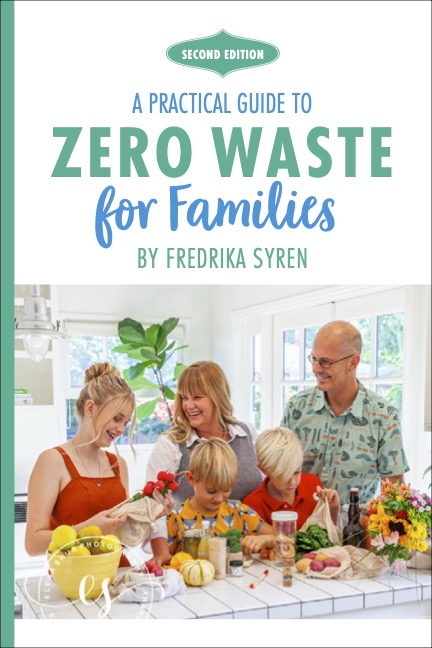How to Overcome Common Compost Problems
In countries that are experiencing snow, the only compost issue that will arise is that a composter may fill to the top before spring. If this is occurring, try putting insulation around the unit or obtain a second composter. During the cold season, the composting process slows down; however, once warm weather arrives, slivers of ice begin to break down organic matter, thus helping to reduce its volume. In warm weather, one may experience the following common problems. These troubleshooting solutions may help: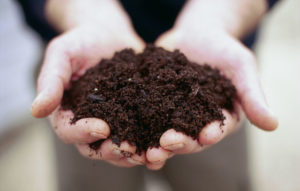
ODOR: A compost pile with an unpleasant ammonia odor contains more nitrogen than the microbes can handle. Spreading out the pile will allow extra gas to escape. Rebuild the heap in a few days by adding more brown materials (carbon) such as dry leaves, straw, crumpled brown
paper, ripped cardboard or sawdust from untreated wood. Topping the pile with soil will also suppress odor and at the same time introduce more microorganisms to speed up the composting process.
ORGANICS NOT DECOMPOSING: If your heap is not shrinking in volume, it is most likely too dry. To keep the dryness in check, add enough moisture to make it as damp as a wrung-out sponge. Include leftover beverages, food scraps such as lettuce that contain moisture, and water from rinsing out pots. Chop large vegetable/fruit cores and peelings into smaller pieces to decompose quicker.
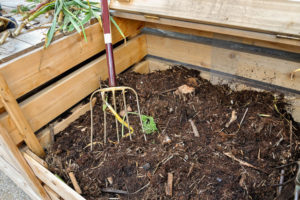 ATTRACTING ANIMALS: Animals searching for food often do not create a mess; however, to deter them, always cover your kitchen scraps with brown materials and turn the heap often to speed up its decomposition. Avoid adding meat, bones, fats or dairy products, as these do not break down quickly and may attract wild life or neighboring dogs. Try mixing food bits with cooled wood ashes, or invest in an elevated Compost Tumbler. In wooded areas, placing pet fur in and around the heap will deter bears. Use a tight-fitting lid.
ATTRACTING ANIMALS: Animals searching for food often do not create a mess; however, to deter them, always cover your kitchen scraps with brown materials and turn the heap often to speed up its decomposition. Avoid adding meat, bones, fats or dairy products, as these do not break down quickly and may attract wild life or neighboring dogs. Try mixing food bits with cooled wood ashes, or invest in an elevated Compost Tumbler. In wooded areas, placing pet fur in and around the heap will deter bears. Use a tight-fitting lid.
NOT HOT ENOUGH: Compost thermometers are available should you wish to monitor how quickly the bacteria decompose the material. A compost heap’s ideal temperature ranges between 110 and 160 degrees F. If the temperature is lower, the pile might be too wet, too dry, too small; or it might have finished decomposing.
TOO HOT: You may have too much nitrogen from green kitchen food scraps. Turning the pile and adding more carbon should solve the problem.
GROWING MOLD: Fungus is common in compost and aids decomposition; however, it also can be a symptom that the compost pile is cooling down. In this case, add more nitrogen and turn it more often.
FRUIT FLIES: If you find fruit flies bothersome, cover exposed food with an inch of soil and use a tight-fitting lid. To discourage fruit flies from a worm bin, avoid adding citrus fruit peelings, garlic and onion skins. These foods are the least enjoyed by the red wigglers and therefore are not devoured quickly enough. When feeding a worm bin, always bury food under a top layer of damp shredded paper bedding.
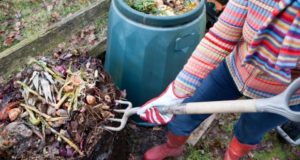 In addition to producing quality compost for your garden, avoid adding BBQ ashes, diseased plants, crabgrass, weeds (after they have gone to seed), toxic plants such as dieffenbachia, as well as the feces of any meat eating domestic pet. Include wood ashes after they have
In addition to producing quality compost for your garden, avoid adding BBQ ashes, diseased plants, crabgrass, weeds (after they have gone to seed), toxic plants such as dieffenbachia, as well as the feces of any meat eating domestic pet. Include wood ashes after they have
completely cooled down. By joining the green wave of recycling, you are helping to reintroduce moisture and nutrients into the soil.
To learn more about the miracle of composting here is my post
If you are new to composting and want to learn you can learn from the king of compost himself, James in his online class.
Related Links:
http://www.hobbyfarms.com/6-compost-problems-and-how-to-fix-them/
https://www.rodalesorganiclife.com/garden/7-solutions-to-your-most-common-compost-problems
http://learn.eartheasy.com/2014/01/tips-for-winter-composting/


